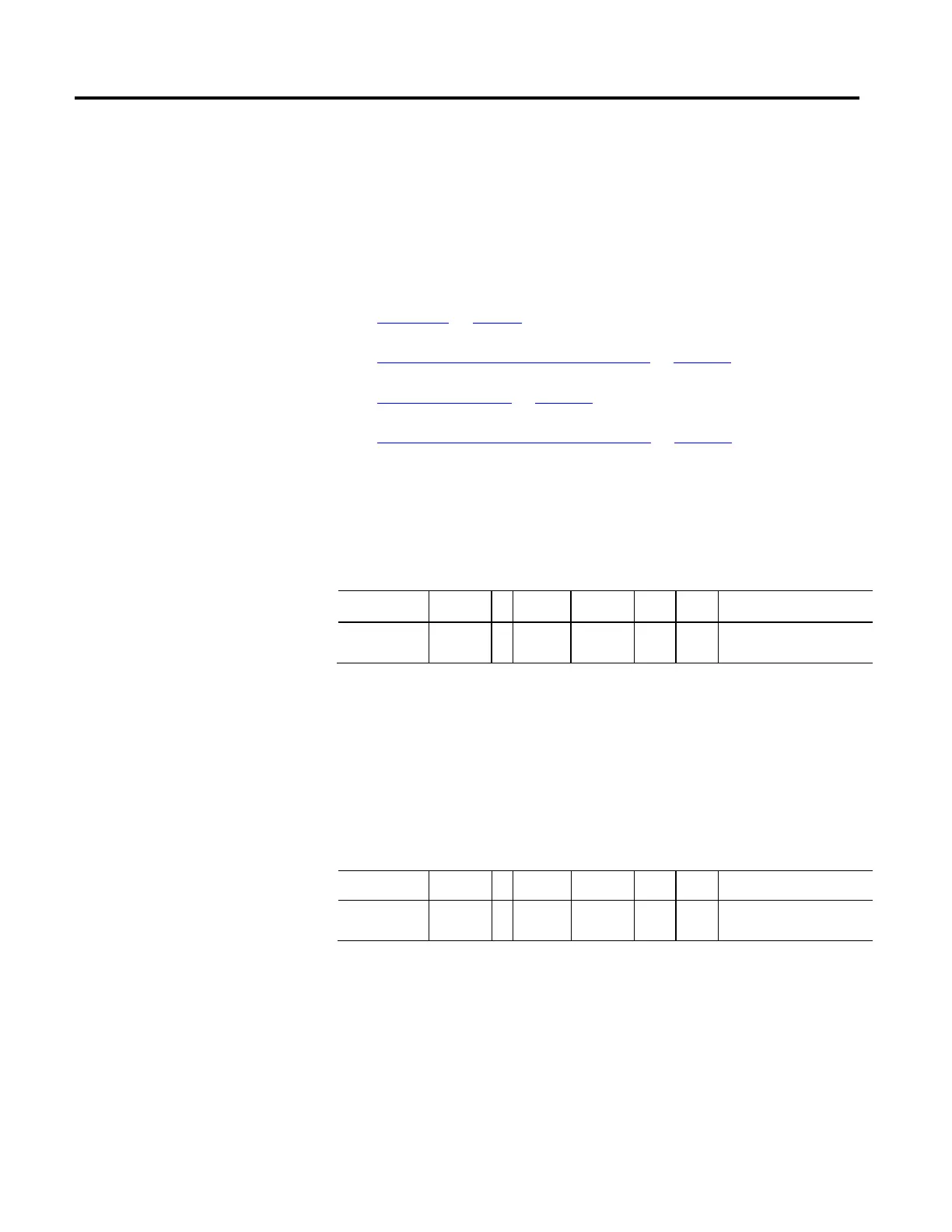Rockwell Automation Publication MOTION-RM003I-EN-P - February 2018 295
A bit map that represents the current state of all Rockwell Automation specific
alarm conditions. Only exception conditions whose Axis Exception Action is
configured to report as an alarm appear in this attribute, and will not be reported
in the CIP Axis Faults attribute. Alarm bits when set are not latched and will clear
as soon as the underlying exception condition is corrected.
See also
Exceptions on page 41
Module Node Fault and Alarm Attributes on page 297
Standard Exceptions on page 456
Rockwell Automation Specific Exceptions on page 465
These are the initialization fault related attributes associated with a Motion
Control Axis. Initialization Faults are conditions that can occur during the device
initialization process that prevent normal operation of the device.
CIP Initialization Faults
Usage Access T Data Type Default Min Max Semantics of Values
Required - All GSV T DWORD - - -
Refer to Standard Initialization
Faults
A bit map that represents the state of all standard initialization faults. These faults
prevent any motion, and do not have configurable fault actions. Examples of
initialization faults are corrupted memory data, calibration errors, firmware
startup problems, or an invalid configuration attribute value. Initialization faults
cannot be cleared with a Fault Reset service, although a power-cycle provides a
new attempt at initialization.
CIP Initialization Faults - RA
Usage Access T Data Type Default Min Max Semantics of Values
Required - All GSV T DWORD - - -
Refer to Rockwell Automation
Specific Initialization Faults
A bit map that represents the state of all Rockwell Automation specific
initialization faults. These faults prevent any motion, and do not have
configurable fault actions. Examples of initialization faults are corrupted memory
data, calibration errors, firmware startup problems, or an invalid configuration
attribute value. Initialization faults cannot be cleared with a Fault Reset service,
although a power-cycle provides a new attempt at initialization.
Initialization Faults Attributes

